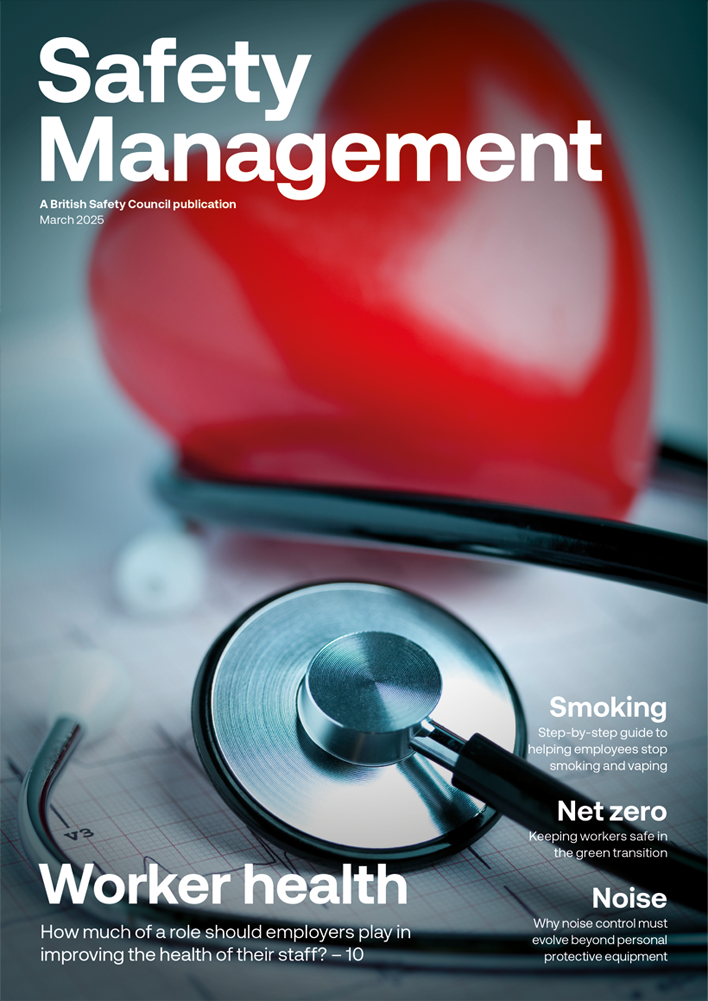With the explosion in home working and dispersed workforces operating without a fixed workplace, it is more important than ever to support the mental wellbeing, engagement and performance of staff.
Features
Successful hybrid and flexible working: the right culture is key
Employee wellbeing, employee engagement and productivity; these three deeply interconnected priorities were occupying the busy minds of people leaders in the autumn of 2021.
Just a few months before Covid-19 restrictions were lifted in the UK, we conducted a survey that found HR leads grappling with how to protect and maintain the performance of more dispersed teams. These were teams whose members had, as individuals, been affected by the crisis in very different and personal ways.
 Employee connection and engagement is one of the most important things to get right for hybrid working to be a success. Photograph: iStock
Employee connection and engagement is one of the most important things to get right for hybrid working to be a success. Photograph: iStock
We found many organisations still feeling unprepared for the adjustments needed in a world in which remote or hybrid working had, in many sectors, become essential. Only 40 per cent said they had a fully-fledged plan to manage the transition to a post-lockdown world. Nearly half said they were still weighing up different options and approaches to manage the transition to a new normal.
What was emerging, though, was consensus on the most important things to get right:
- Employee connection and engagement
- Maintaining the mental health and wellbeing of your employees
- Maintaining productivity.
Together, these were identified as the important pieces in the puzzle of how to shape a sustainable work culture in a world shaken up by the global crisis. In addition, our survey then highlighted the need for a new style of leadership to deliver this cultural change.
Investing in wellbeing
In the years pre-pandemic, those with workplace safety, health and wellbeing responsibilities and HR leads had long been working together to develop cultures in which co-workers, at every level of the organisation, looked after each other.
 Chris Preston w
Chris Preston w
ill be speaking at SHW Live in Farnborough, Hampshire, on 29 September. Photograph: iStock
Driven by the moral imperative as much as by the commercial need, senior leadership teams were investing in strategies for physical and mental wellbeing, and performance measuring their delivery of them. Now, two-and-a-half years on from the outbreak, that focus on wellbeing as central to business sustainability has never looked more critical.
We advise businesses in the UK and around the world on developing work culture and have seen at first-hand how our clients have charted a path through the crisis by prioritising wellbeing.
Usually, this has involved entrusting and empowering employees to meet objectives in ways that suit their lifestyles. For many of us, without the traditional ‘portals’ of the commute and separate space for work, the pandemic has mashed together work and the rest of our lives, often with consequences for our mental health and wellbeing.
On 29 September, at Safety, Health & Wellbeing Live (SHW Live) in Farnborough, I will speak on the advancements organisations have made this year on wellbeing and work culture, with a specific focus on hybrid or flexible working. I come at this from the perspective of a business management consultant, and I see a huge opportunity for those in safety and health to step forward and take a leading role in shaping the new world of work.
With their HR counterparts, safety and health leads should look at employee wellbeing as one of five critical pillars of work culture, integrated with the pillars of engagement, purpose, performance and leadership. How can they then work with line managers to empower teams, giving members buy-in and some control over how they deliver on objectives?
Employers which firm up what they are on this planet to do are seeing a renewed vigour and connection from their employees. Photograph: iStock
In our report, Poly-working: the evolution of hybrid working, we suggest a framework for managing a more dispersed workforce. We suggest these five things:
1. Set a clear purpose for your organisation – organisations using this opportunity to firm up what they are on this planet to do are seeing a renewed vigour and connection from their employees
2. Autonomy and freedom, with principles – alignment and autonomy are critical factors for employee enablement and empowerment. We have to, right from the start, set out what’s required to make this new world work, on both sides of the equation
3. Employee engagement for a dispersed workforce – with a workforce spread across locations, times and work patterns, the task of providing a coherent communication and engagement offering internally will be harder than ever, but not impossible. The requirement will be to give this traditionally neglected area more investment
4. Performance managed with greater onus on objectives than hours worked – with remote working, we don’t have the same closeness to help steer people’s work. So, ultimately, performance will be down to two things – clarity and conversations. Working with people to clearly outline outputs, and then regularly discussing that progress
5. Resetting of leadership to be more trusting and empathetic – with offices becoming semi-deserted on a permanent basis, weak, self-focused managers and leaders will really, really struggle. What is needed now are empathy, trust, engagement and coaching. They hide beneath them a fair bit of practical action, but any organisation focusing on upping these four with their leaders will not go far wrong.
At SHW Live, I will invite delegates to consider these suggestions in the context of managing safety, health and wellbeing at work. For a psychological risk assessment, for example, occupational stressors might include pressure, lone working, targets, deadlines and demands from our managers.
In a hybrid working world, we know just how interlinked employee engagement and organisational culture are with people’s health and wellbeing at work. Now, more than ever, those with safety, health and wellbeing responsibilities at work have an incredibly important part to play.
Chris Preston is director and co-founder of The Culture Builders, an award-winning business management consultancy that specialises in helping organisations create successful work cultures.
See: theculturebuilders.com
[email protected]
Chris will be speaking at SHW Live in Farnborough, Hampshire, on 29 September. Register for free at: safetyhealthwellbeing.live
FEATURES

Why quality data is essential when using AI for occupational safety and health management
By Dr Bob Rajan-Sithamparanadarajah. Safety Groups UK (SGUK) on 01 April 2025
Artificial intelligence-powered models, systems and technology have the potential to significantly improve the management of occupational safety and health (OSH) risks, but it is vital that OSH practitioners understand the limitations and dangers of using AI to protect people at work.

Sustainable aviation fuels: how do we put the SAFety in SAF?
By Megan Hine, Draeger Safety UK on 01 April 2025
Sustainable aviation fuel is seen as having great potential to reduce the greenhouse gas emissions from air transportation. However, as with other emerging renewable energy sources, the safety risks arising from the production, processing and storage of these biofuels can be accompanied by new risks and will require careful management from the safety industry as utilisation increases to meet the Government’s mandatory targets.

Why social sustainability should be a priority for health, safety, environmental and compliance professionals
By Agnes Chruszcz, IEMA (Institute of Environmental Management and Assessment) on 01 April 2025
By embedding social sustainability principles into their policies and operations, organisations can not only improve quality of life for their employees, workers in their supply chains and the communities they interact with, but boost their business resilience, productivity and reputation.



